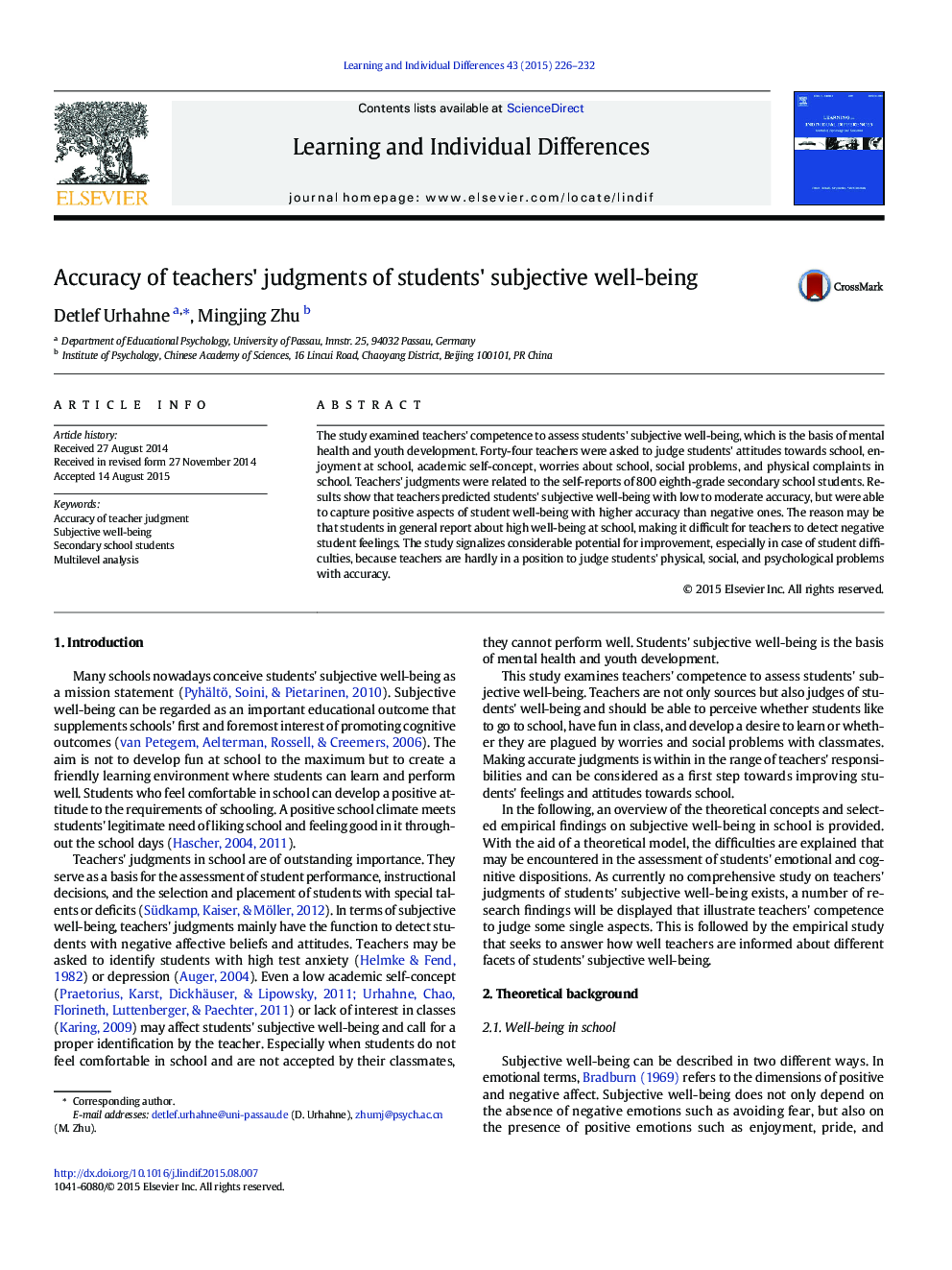| Article ID | Journal | Published Year | Pages | File Type |
|---|---|---|---|---|
| 364673 | Learning and Individual Differences | 2015 | 7 Pages |
•Teachers were asked to assess students' subjective well-being.•Teachers' judgments were related to students' self-reports.•Teachers predicted students' subjective well-being with low to moderate accuracy.•Positive aspects of students' subjective well-being were judged with higher accuracy.•The reason may be that most students in school feel well.
The study examined teachers' competence to assess students' subjective well-being, which is the basis of mental health and youth development. Forty-four teachers were asked to judge students' attitudes towards school, enjoyment at school, academic self-concept, worries about school, social problems, and physical complaints in school. Teachers' judgments were related to the self-reports of 800 eighth-grade secondary school students. Results show that teachers predicted students' subjective well-being with low to moderate accuracy, but were able to capture positive aspects of student well-being with higher accuracy than negative ones. The reason may be that students in general report about high well-being at school, making it difficult for teachers to detect negative student feelings. The study signalizes considerable potential for improvement, especially in case of student difficulties, because teachers are hardly in a position to judge students' physical, social, and psychological problems with accuracy.
